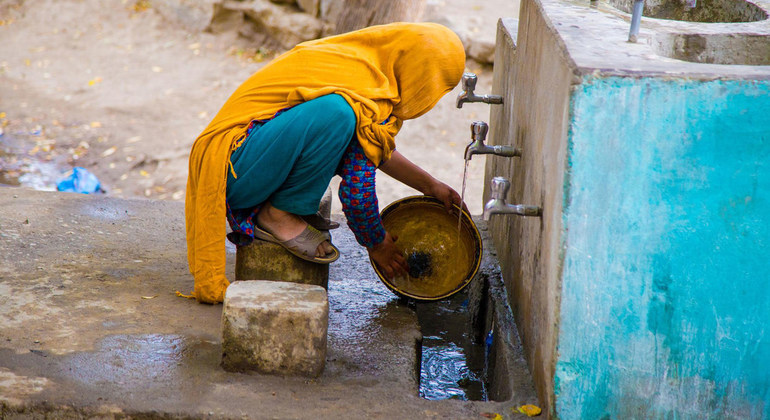In its first summary of the latest research into the impact of the tiny plastic pollutants on humans, the World Health Organization (WHO) said that they have been found in marine settings, waste and fresh water, food, the air and drinking-water, both bottled and from a tap.
Frequently, microplastics are defined as less than five millimetres long, according to WHO.
Its report notes that the particles most commonly found in drinking-water are plastic bottle fragments.
“Based on the limited information we have, microplastics in drinking water don’t appear to pose a health risk at current levels. But we need to find out more,” said Dr Maria Neira, WHO’s Director, Department of Public Health, Environment and Social Determinants of Health. “We urgently need to know more about the health impact of microplastics because they are everywhere – including in our drinking-water.”
Microplastics in drinking water don’t appear to pose a health risk at current levels. But we need to find out more – WHO Director, Dr. Maria Neira
According to WHO’s findings, microplastics larger than 150 micrometres (a micrometre is a millionth of a metre) are unlikely to be absorbed in the human body, while the uptake of smaller particles is likely to be limited.
Absorption of microplastic particles “including in the nano-size range may, however, be higher”, the WHO report continues, before cautioning that available data in this “emerging area” is extremely limited.
Asked by journalists about how levels of plastic pollutants differ between tap water and bottled water, WHO’s Jennifer de France from WHO’s Department of Public Health, replied that bottled water “in general did contain higher particle numbers”.
Nonetheless, Ms. France also cautioned against jumping to conclusions, owing to the lack of available data.
“In drinking water in general, often the two polymers that were most frequently detected were polyethylene terephthalate (PET) and polypropylene,” she said. “Now these polymers – the polyethylene terephthalate – is often used in producing bottled water bottles, and polypropylene, is often used in producing caps. However, there were other polymers detected as well, so more studies are needed to really make a firm conclusion about where the sources are coming from.”
While citing the handful of available studies into the absorption of microplastics and nanoplastics in rats and mice, which showed symptoms including inflammation of the liver, WHO’s report insists that people are unlikely to be exposed to such high levels of pollutants.
Drinking-water contamination: a million lives lost each year
A much more clearly understood potential threat than microplastics is exposure to drinking-water contaminated by human or animal waste, said Bruce Gordon, from WHO’s Department of Public Health, highlighting a problem that affects two billion people and claims one million lives a year.
One way that Governments can tackle this problem is by putting in place better waste-water filtration systems.
The move would reduce microplastic pollution by around 90 per cent, the WHO official explained, before noting that the report had touched on people’s wider concerns about how to live more sustainably and waste less.
“Consumers shouldn’t be too worried,” Mr. Gordon said. “There’s many dimensions to this story that are beyond health. What I mean by that is, if you are a concerned citizen worried about plastic pollution and you have access to a well-managed piped supply – a water supply – why not drink from that? Why not reduce pollution. Of course, there are times when you need a water bottle when you’re walking around, but please reuse it”, he emphasized.



